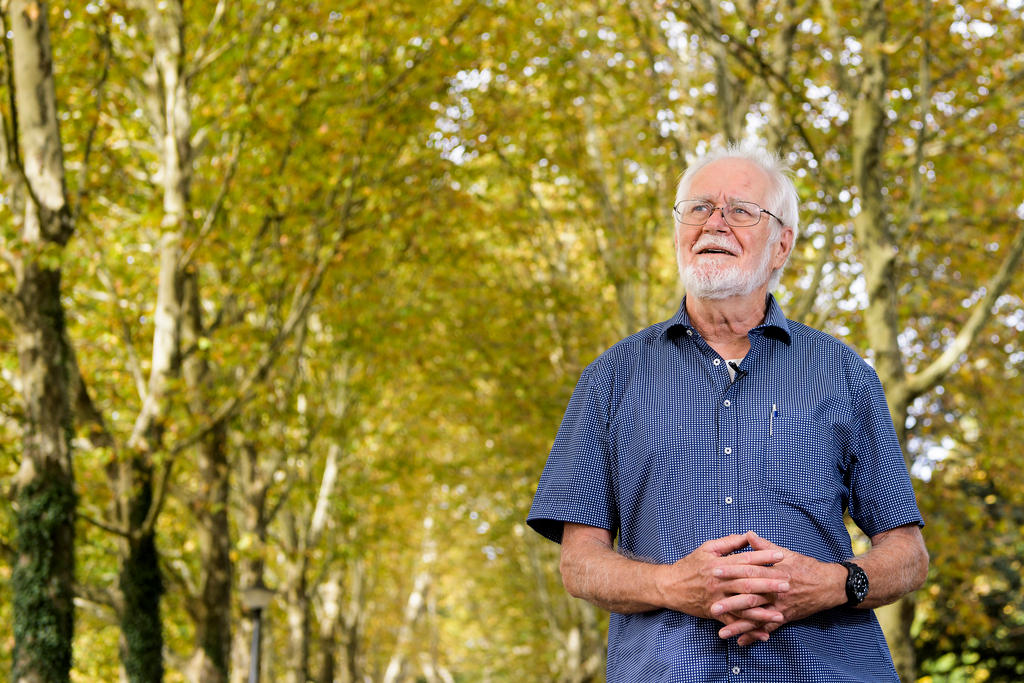
Swiss Nobel winner reacts with ‘great gratitude’

A relaxed, happy, and humble Jacques Dubochet reflected on his achievements and career at the University of Lausanne hours after learning he had won the 2017 Nobel Prize for Chemistry.
Summing up his career, discoveries and emotions at the university (“a magnificent place”) where he was professor for two decades, Dubochet was keen to share the limelight with the colleagues that made it possible.
“At a moment like this, the feeling that prevails is one of great gratitude,” he said. “But a scientific prize is an ambiguous thing; it puts forward an individual, whereas it should be putting forward a collective effort. I am not all alone!”

More
Swiss wins 2017 Nobel Prize in chemistry
He named various researchers, from the University of Bern to Caltech in California, on whose “shoulders” his discoveries were based. Family was also important to him: he singled out his wife, son (born the year of the discovery) and daughter (born the year they discovered “how to do something useful with it”).
Challenges and advice
The path wasn’t always clear or easy, Dubochet said. He entered a secondary school with a literary focus, but “within three weeks realised it was too difficult” for him. He then transferred to a scientific track, where he was diagnosed with dyslexia. He says he used the condition as a “pillow for laziness”, getting worse and worse results across the board.
“During my youth, I was quite asocial,” he says. “I had a lot of difficulty with the world. Every ten years, I found, it got a little better. Now things are going quite well.”
Given this background, swissinfo.ch asked him, has he any advice for today’s aspiring scientists?
“There is a problem today,” he replied. “You have to have an impact factor, do lots of things that are very difficult [to succeed in the scientific world].”
In his group, he said, the most important factor would always remain working together, and not succumbing to his pet hatred of “personal competition.”
“It was a necessary requirement that one was open to collaboration,” he said of his career successes.
Representing the University of Lausanne, rector Nouria Hernandez said “we are all very proud. It’s a magnificent day.”
“Jacques Dubochet greatly deserves it. We will now prepare the next Nobel Prize winner.”
swissinfo.ch/cl,dos

In compliance with the JTI standards
More: SWI swissinfo.ch certified by the Journalism Trust Initiative















![The four-metre-long painting "Sonntag der Bergbauern" [Sunday of the Mountain Farmers, 1923-24/26] had to be removed by a crane from the German Chancellery in Berlin for the exhibition in Bern.](https://www.swissinfo.ch/content/wp-content/uploads/sites/13/2025/12/01_Pressebild_KirchnerxKirchner.jpg?ver=f05a5a9c)
















You can find an overview of ongoing debates with our journalists here . Please join us!
If you want to start a conversation about a topic raised in this article or want to report factual errors, email us at english@swissinfo.ch.